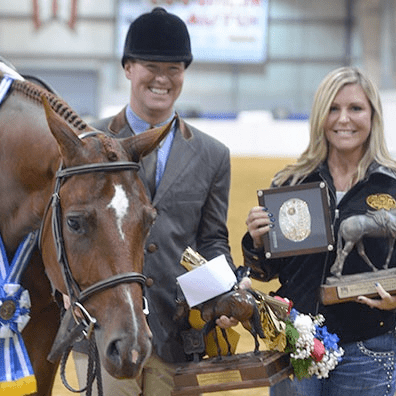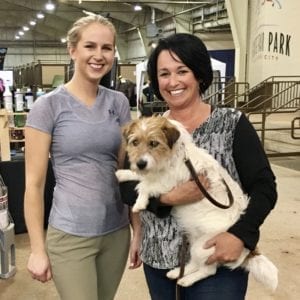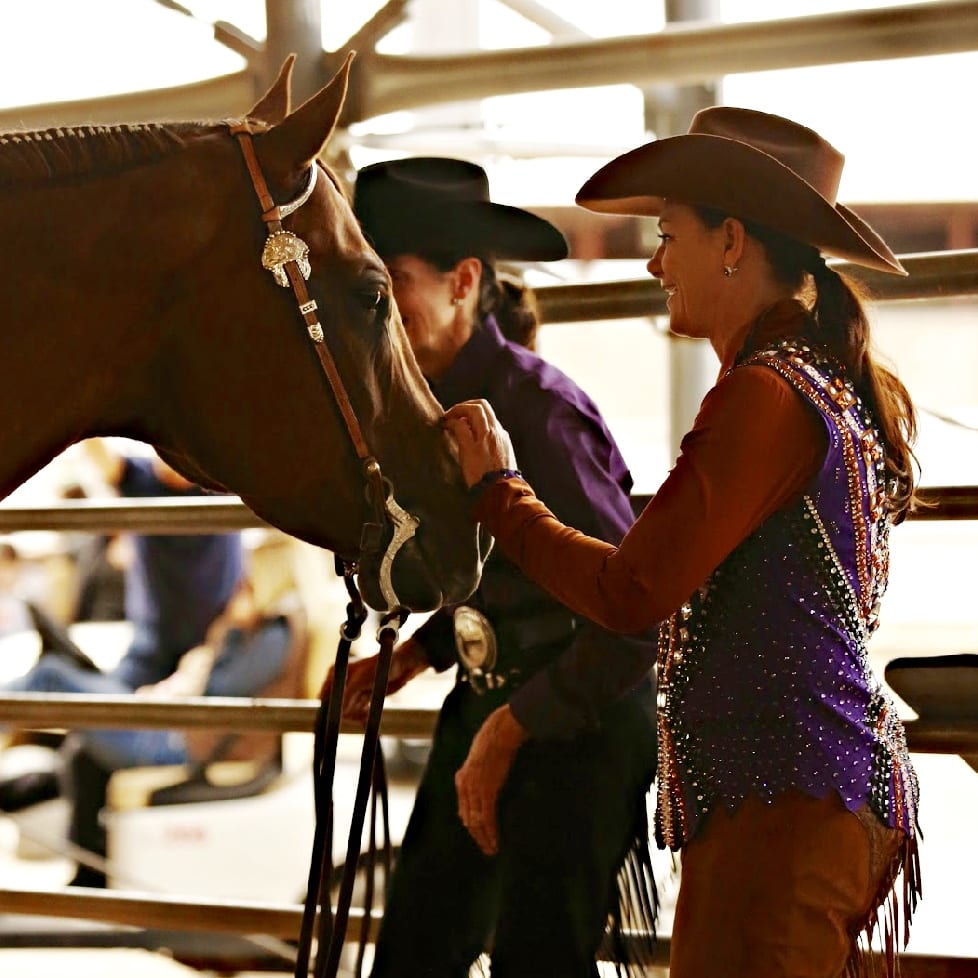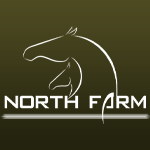Every industry faces challenges that force them to dive into their mission and the way it is carried out. The equine industry is no different. As a sizeable economic contributor to many states and businesses, equine enthusiasts and professionals are a piece of a giant puzzle.
Like a puzzle, if one part is dislodged, we run the risk of industry displacement. The happiness of contributors and participants defines the industry as a unit. There may be larger pieces than us, but it doesn’t mean our impact is less. Each member, exhibitor and professional affects the future.
GoHorseShow talked with two industry professionals about how they promote the industry to new clients – which also plays a role in exhibitor retention.
Customer Retention and Professionalism
Multiple World and Congress Champion, Keith Miller of Reidsville, NC, says that he takes his role as a professional very seriously. “I hold myself to a level of professionalism that would be required in any work-setting. I feel that if the professionals are not able to set a good example regarding their behavior as well as animal-welfare, then it’s unrealistic to think the rest of the industry will. I strive to be someone who the next generation can look up to. I want to be known for working hard, having nice horses, and having a fun show environment for my customers.”
 Miller continues, “Customer retention is very important to our business as well, and the best way to ensure you keep customers is to be honest with them. Things may come up, and a customer needs to feel comfortable enough with their relationship with their trainer that they can have a candid conversation about any problems that may arise (this works both ways). Though, it’s not always easy to hear, it’s imperative to your customer/trainer relationship to listen to the other person’s concerns and rectify them if appropriate. Honesty and communication will always be the single most important factor in customer retention.”
Miller continues, “Customer retention is very important to our business as well, and the best way to ensure you keep customers is to be honest with them. Things may come up, and a customer needs to feel comfortable enough with their relationship with their trainer that they can have a candid conversation about any problems that may arise (this works both ways). Though, it’s not always easy to hear, it’s imperative to your customer/trainer relationship to listen to the other person’s concerns and rectify them if appropriate. Honesty and communication will always be the single most important factor in customer retention.”
As Keith mentions, trust and communication are critical factors in a functioning relationship between client and trainer. Trainers should hold themselves to a standard that not only protects their business, but the client and industry as well. When newcomers to the industry are seeking guidance, they don’t necessarily know what questions to ask.
As professionals, it’s okay to steer the conversation in a way that encourages the potential client to open up about their goals. Or, that potential customer might need help to define their goals. Within that conversation, it should become clear if it would be a good client/trainer match or if the trainer should connect them with someone else.
Be a Connector
 Kelly Boles Chapman, 2018 Paint Professional Horsewoman of the Year, explains that role of professionals and connectivity.
Kelly Boles Chapman, 2018 Paint Professional Horsewoman of the Year, explains that role of professionals and connectivity.
“I try and be a ‘connector’ and help people find who can best help them reach their goals. I think it’s important to listen to people and help them identify a plan or a path to what they want to do. On the stock horse side of the industry, we have very few opportunities for solid educational lesson programs where someone doesn’t need to own their horse to begin to ride.”
Chapman, who lives in Battle Creek, Michigan, explains, “In the hunter segment of our industry, there is a much more traditional culture of a lesson program with school horses. That is a great way for people, children or adults, to enter the world of equestrian recreation without having to make a necessary financial purchase up front. We need to get better on the western side of things to develop opportunities for people to interact with horses, and develop a love for them and a love for riding. Lesson programs with school horses are an excellent strategy for this.”
Keith’s message echoes this as he explains how he communicates with potential new clients. “I think it’s essential to educate new/prospective clients on what we can offer, so they can make an informed decision on what direction they might want to go. I would much rather place them in a situation where I feel like they will be happy and meeting their goals, than just assuming our program is right for everyone.”
Show Again
Another statement made by Chapman is that people often find themselves at a point where horse-showing might not fit their schedules – whether it’s because of school, kids, careers, or other reasons. There is a specific demographic of equestrian enthusiasts who need to re-enter the industry.
“Several years ago, a study was done that estimated the average stay in the purebred livestock industry was seven years,” Chapman says. “People get in, establish a path of participation, and then a considerable percentage don’t continue down that path after a few years. We need to get better at making it not quite so hard to re-enter the equine scene.”
Some intimidating factors can be the changing styles of clothes and classes, new names and faces and new events. We have personally seen people who were accomplished in the show ring come back ten or more years later and have to start over from square one. They needed guidance where they had once been confident.
For some, it’s just too much, especially when you add in life’s other demands. Fortunately, this is an example of where social media and other websites have a positive impact on the industry. Instead of having to show up blindly to events, people can follow the industry from afar and keep their eyes on trend shifts.
Love the Horse
Whether you are a horse show veteran making your way back to the arena or someone with a vested interest in horses, but no experience, it is always important to remember we all started this because we love the animal. This is too much work to not find joy in long hours, money spent and falls we will have. There are good and honest people in the industry.
As with anything, perfection is not attainable, but we can be closer than we are. The future of the equine industry is reliant on professionals who are willing to have open conversations and newcomers who don’t give up on finding the right people to guide them.
When promoting the industry to new clients, Chapman says, “I think it is important to help people find the true joy in horses and sometimes that doesn’t mean jumping into the show ring immediately. It’s imperative that we help people find a way to intersect in some way – maybe equine-related events and activities in addition to riding. We all get caught up with riding and schooling in preparation for that next big show, but what about finding what made us have fun with horses in the first place?”
Positive Words
The last question we asked both Miller and Chapman was what positive word or phrase best describes the industry. We need to reflect on that sometimes.
Keith’s phrase: Family-oriented. “I think when you look around at a horse show, you realize that so many of the people here participating are doing it with family – whether their family has been involved for generations or a new family is just being exposed to it. I feel so fortunate to have the opportunity to raise my children in this industry where I know they will learn invaluable lessons and also have such a large extended family always watching out for them. It’s a great feeling.”
Kelly’s word: Evolving. “We are in constant change due to the changing segment of our consumers. This alone should be pushing us to keep people involved and challenging ourselves to find ways to have people enter the horse world.”
New participants in the equine industry hold people in it to a standard that we may sometimes fall short. If we approach every day with the mindset that someone is watching and learning from us, we might be more conscious of the decisions we make. Emotions are a given within this industry, but it comes from a place of passion and motivation.
Those feelings can be as destructive as they are empowering. Don’t be afraid to lend a hand to get someone off on the right foot. They will remember the experience they had with you. That alone could define the industry for them. The future is in our hands – place your puzzle pieces wisely.
About the Author: GoHorseShow Contributing Writer, Morgan McCarthy Warda grew up actively competing on the AQHA circuit from leadline to her now amateur years and is a past Michigan Quarter Horse Association Queen.









